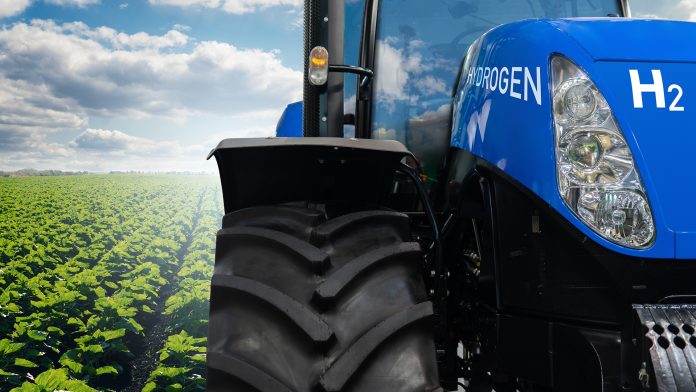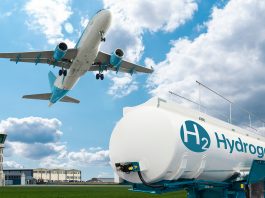The UK Government has announced plans to introduce hydrogen vehicles in the agriculture and construction industries.
In a consultation launched today, the government has detailed new regulations that will see hydrogen vehicles, such as tractors, diggers, and forklifts, rolled out to help these sectors go greener.
Agriculture and construction produce significant carbon emissions. Hydrogen vehicles can significantly help decarbonise industries that are critical to the UK economy.
The new regulations will allow hydrogen-powered tractors, diggers, and forklifts to be used on UK roads, with the consultation running for four weeks, closing on 24 April.
Anthony Browne, the UK’s Technology and Decarbonisation Minister, explained the importance of the move: “Allowing hydrogen-powered tractors, diggers and forklifts to use our roads is a common-sense move to help reduce emissions.
“These proposals are an important part of our plan to decarbonise transport in the UK, with skilled jobs in British companies helping roll out this cutting-edge hydrogen technology, making it more affordable and commonplace.”
Benefits of hydrogen vehicles
The rumble of tractors and digger excavators are vital sounds in agriculture and construction, but they also contribute significantly to greenhouse gas emissions.
Hydrogen fuel cell technology offers a promising solution, bringing a wave of environmental and operational benefits to these crucial industries.
Unlike traditional diesel or petrol engines, hydrogen vehicles produce zero tailpipe emissions. This translates to cleaner air on farms and construction sites, improving the health of workers and surrounding communities. Additionally, it helps combat climate change by reducing greenhouse gas footprints.
Hydrogen fuel cells operate quietly compared to combustion engines. This creates a calmer work environment for operators and reduces noise pollution for nearby residents and wildlife. This can be particularly advantageous in noise-sensitive areas or during night time operations.
Modern hydrogen fuel cells offer a range comparable to traditional diesel vehicles, allowing farmers and construction crews to work a full shift without needing to refuel. Refuelling times are also projected to be similar to diesel or gasoline, minimising downtime.
Hydrogen vehicles also deliver high torque and power, which is ideal for the demanding tasks encountered in farming and construction. Whether it’s pulling heavy loads, operating hydraulic machinery, or navigating uneven terrain, hydrogen vehicles can provide the muscle needed for the job.
Hydrogen fuel production can be linked to renewable energy sources like solar or wind power, creating a truly sustainable transportation cycle. This aligns with the growing focus on eco-friendly practices in both agriculture and construction.
UK commitment to hydrogen infrastructure
The consultation launch follows the government’s authorisation of construction equipment manufacturer JCB with a special order last year, allowing the testing of hydrogen-powered diggers on UK roads.
The current proposals aim to extend this permission indefinitely throughout the sector, enabling manufacturers to efficiently increase the production of sustainable equipment, particularly where battery electric power is not feasible.
Hydrogen, alongside electric power, stands out as one of the numerous sustainable fuel options capable of expediting decarbonisation efforts.
Initiatives like the government-backed Tees Valley Hydrogen Hub demonstrate the practical utilisation of green hydrogen across the transportation sector, fostering job creation, apprenticeships, and economic growth in the region.









